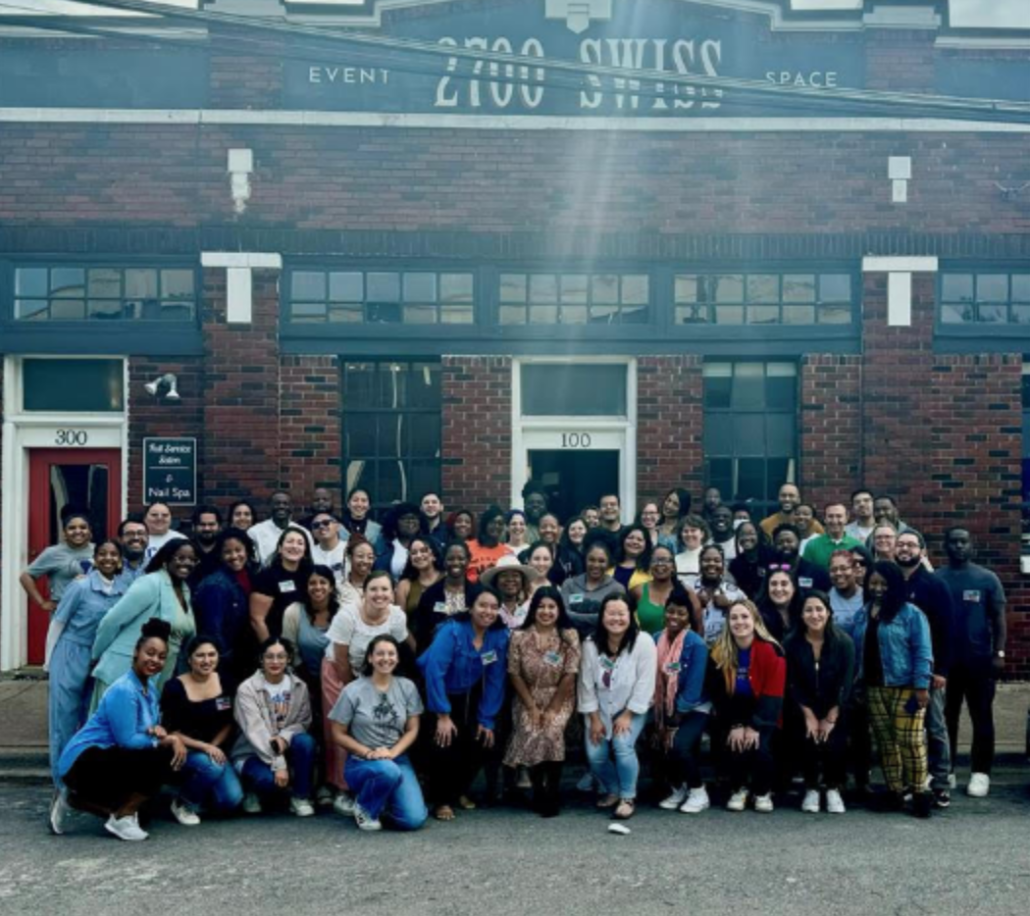#94 – Reflections from the National Organizing Workshop
Written by Jia Lin-Bothe, Director of Family Empowerment

Participants and facilitators at this year’s National Organizing Workshop.
Last weekend, I joined a group of sixty community leaders from across the US in Dallas, TX, for a National Organizing Workshop. Leadership for Educational Equity hosts this workshop to equip leaders with the civic leadership skills and mindsets to effectively fight for an equitable future in our communities. I expanded and built on my power-building, advocacy, and civic leadership skills.
Prior to this workshop, I thought of “community organizing” as a way to get into political office. Yes, this is one part of it. Organizing means using the community as a collective power to influence something to change: by bringing people together around shared concerns and/or aspirations, it empowers individuals to collectively address issues that may have otherwise seemed insurmountable. The power of community organizing lies not only in its ability to amplify individual voices but also in its capacity to foster a sense of unity and purpose, driving meaningful and lasting change that reflects the true needs and desires of the community it serves. We’re doing just that, through our data-driven family empowerment work, by listening to the voices of families and understanding their life situations, needs, wants, and goals, then ensuring that their students’ schools are meeting those needs and wants through partnerships with community organizations.
I’m walking away from the National Organizing Workshop with two keypoints:
- Understanding the current landscape, history, and background of the community and the issue is essential. Research is needed to understand the funding model and legislative structure. However, conducting listening sessions and building individual relationships are also key components because the lived experiences of individuals in the community make them the experts.
- It’s normal to have tension and anger in advocacy because laws are our values written down. Throughout history, laws and systems have often been created with biases and inequities, such as racial segregation, discriminatory voting practices, and unequal access to education. I’m learning that it’s normal to have tensions arise in my daily work due to the frustration of our current education system and lack of support for families.
Community organizing serves as a catalyst for social and political transformation. When communities unite, they become a force capable of influencing policy decisions at the local, regional, and even national levels. These grassroots efforts foster a greater sense of civic engagement and responsibility, encouraging individuals to become active participants in the democratic process. This way, community organizing not only transforms communities from within but also has the potential to reshape the broader societal landscape, ultimately promoting a more just and equitable world.
This was an excellent experience for me as I got to network with others who are leading similar work across the country. I realized that I am building power with families, learning with them, and advocating together to build more equitable systems.
—
Action Item:
- Express your political voice by voting in the upcoming election. Here is a list of early voting sites for the 2023 Mecklenburg Municipal Elections.

Leave a Reply
Want to join the discussion?Feel free to contribute!